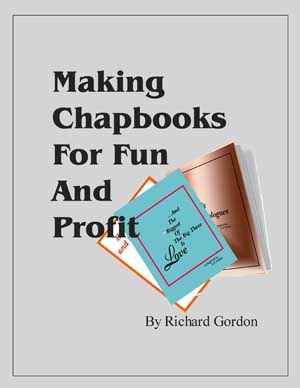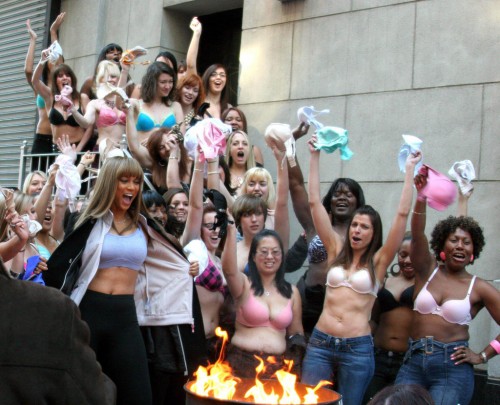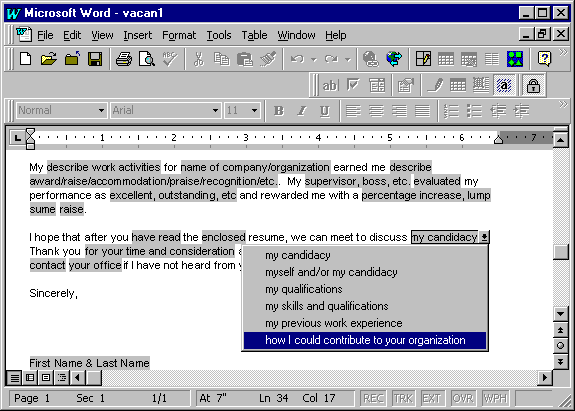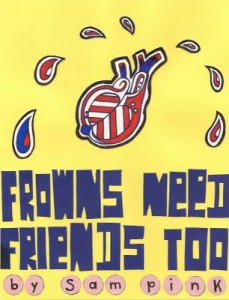NYC Area Alert: Don’t Forget about the Chapbook Festival Today!

Hey friends. I’m freshly returned to the CITY THAT NEVER GETS CARBOMBED after a sweet Southern swing through Atlanta, GA and Sarasota, FL. In Atlanta I got to hang with Heather Christle, Chris DeWeese, Blake Butler, Amy McDaniel (who put me up and showed me around) and Casey McKinney. Then Amy and I roadtripped on down to Sarasota for two days of events at New College, where we stayed with Alexis Orgera and rolled deep with Alec Niedenthal. Skol shots with coconut pie chaser! A panel discussion on readings for models! Un-ironic dancing! It was college all right, and I loved it. But I love being back, too, and to prove it I will spend today in a windowless room with nineteen or so other “chapbook” publishers, selling small amounts of paper for small amounts of money. The Chapbook Festival is free and open to the public. It is in the ground floor of CUNY at 365 Fifth Avenue, at the corner of 34th street, right by the Empire State Building. The fair opens at 11:30AM and goes all day. There’s also free workshops and a Marathon Reading that will be running all day as a kind of parallel narrative to the rest of the festival. Yesterday I was traveling, but co-Agriculturalist Jeremy Schmall tells me that organizing poet Ana Bozicevic has really outdone herself this year, which must be pretty good since I had so much fun last year that I posted about it twice (2). So I’m pretty pumped that he has to go to work today and I get to go to CUNY and do this. I know Mike Young will be there, and I’m sure that further surprises will abound. If you’re around, you should come see us.
It was my own mother, incidentally, whom I can scarcely recall ever seeing with a book in her hand, who told me one day when I was reading The Fifteen Decisive Battles of the World that she had read that book years ago herself–in the toilet. I was flabbergasted. Not that she had admitted to reading in the toilet, but it should have been that book, of all books, which she read there.
That’s Henry Miller, in his fantastic nonfic, The Books in My Life.
Shome Dasgupta has a similar thing going on over at his blog, The Laughing Yeti. A bunch of people talking about their reading habits, including Mike Young, Roxane Gay, Stephen Eliot (oh, and me).
Bill Murray Poetry in a Hard Hat
On the occasion of the building of Poet’s House in Manhattan:
Fifth Mess Section
 1. The point is that, if we think literature is still worth talking about, every book is part of that debate, which is why reviews of non-blockbuster books should do one of two things: either convincingly shout to the hilltops, “Read this book!” or, in explaining why there’s no shouting, try to find larger truths about literature in a book’s strengths and flaws. … Literature is not about the writer. It’s about the book, it’s about art, it’s about life. … in the madding crowd of narrative, it turns out the big world doesn’t really need a book if it’s not great enough to be truly important, specialized enough to find its niche, or equipped with a secret weapon. When that happens—and it happens far more often than not—it is time for writers to think about what we want out of writing, out of publishing, out of their lives, and make our decisions accordingly. –from a blurb by Eric B. Martin
1. The point is that, if we think literature is still worth talking about, every book is part of that debate, which is why reviews of non-blockbuster books should do one of two things: either convincingly shout to the hilltops, “Read this book!” or, in explaining why there’s no shouting, try to find larger truths about literature in a book’s strengths and flaws. … Literature is not about the writer. It’s about the book, it’s about art, it’s about life. … in the madding crowd of narrative, it turns out the big world doesn’t really need a book if it’s not great enough to be truly important, specialized enough to find its niche, or equipped with a secret weapon. When that happens—and it happens far more often than not—it is time for writers to think about what we want out of writing, out of publishing, out of their lives, and make our decisions accordingly. –from a blurb by Eric B. Martin
2. At banks, there are machines for “cash withdrawing” and “cash recycling.” The menus of local restaurants might present such delectables as “fried enema,” “monolithic tree mushroom stem squid” and a mysterious thirst-quencher known as “The Jew’s Ear Juice.” –the problems with Chinglish
3. The room thus becomes a counterpunctual archive of heart rates in space, throbbing like a chandelier in front of you. –about Pulse Room
4. But I think caught in that way they are too weak to convey anything. I think that great art is deeply ordered. Even if within the order there may be enormously instinctive and accidental things, nevertheless I think that they come out of a desire for ordering and for returning fact onto the nervous system in a more violent way. Why, after all the great artists, do people ever try to do anything again? Only because, from generation to generation, through what the great artists have done, the instincts change. And, as the instincts change, so there comes a renewal of the feeling of how can I remake this thing once again more clearly, more exactly, more violently. –a great interview of Francis Bacon
5 larksons of elly yo
1. Cleaned out under my fridge today and found a fillet knife, dust-gorillas, and a chapbook. It is called “thunderstorms as familial convulsion.” Ryan Call as good as any at using weather as something more than weather.
2. Made me think of this sonnet by Kathleen Kirk. It is “Roof Leaks, Mimi Calls.”
All across the city the tyrant ice
pries up the tar and flashing, disturbs the peace
of shingles, their social order. It’s not the freeze
but the thaw that ruins us, the sudden spies
wiring the closet walls with new secrets,
the trickle-down effect in our kitchens,
cups and buckets competing for attention,
disintegration: sheetrock into dust.The phone rings, your mother with the news.
The ceiling shifts, sure it wants to open.
Nothing falls, not even the sky.
Your voice is like a level, its yellow tube
tipping the bubble of air toward hope
and back. Cancer—just another tyrant.
4. I have decided those who get bothered about quotation marks bother me. Dialogue isn’t about those little cheese curls. Do it right and you won’t have to do it right anymore.
5. Hold up. Tao Lin (actually Kacper Jarecki) wants your money. Wants your money. And then they ate whale.
But What About the Nipples? A Nice Conversation (Pt. 1)

Blake Butler, Kate Zambreno, Amy King and I recently had an interesting and lengthy conversation about gender, publishing and so much more, prompted by lots of things including the recent, and largely excellent discussion in Blake’s “Language Over Body” post about the second issue of We Are Champion. Over the next three days, I’m going to post that conversation and we all hope you guys join in on our conversation and share your thoughts.
Amy: I don’t know if you’ll be pleased to know that conjured your name today, Kate, over at Roxane’s gig, HTMLGIANT. A post pimping the second issue of a new mag, “We Are Champion,” doesn’t note that it’s an all-male issue or that the first one included the work of only three women. Just one tiny example of a recurring indicator that women writers still aren’t taken seriously, actively sought out, promoted, etc.
Kate: I actually thought the great majority of the conversation that went around this issue on HTML Giant seemed considered and thoughtful, both the idea of “counting” as seeming problematic, and shouldn’t it just be about the writing, and the other side problematizing how when such an inequity occurs it’s just dismissed as “this is just the best writing out there,” etc. I think it’s a worthwhile issue to explore, if there is still such an inequity in terms of numbers of women published in literary journals (or anyone not straight, white, men). I’m thinking of Juliana Spahr/Stephanie Young’s Number Trouble piece that was published in Chicago Review. I agree with Roxane that this We Are Champion that didn’t feature any women writers is a symptom of a gender inequity that might be still there in terms of innovative writing, but is not the disease itself. And that zeroing in on this one issue is not really getting at the larger context (although perhaps opening the discussion?)
Roxane: I’m a Libra so I often have many and conflicting opinions about things. I do think the all-male issue of We Are Champion is problematic but I also know that there are many factors involved in how a given issue of a magazine is assembled. While there are many, many problems with how women writers are treated, regarded, and promoted within the publishing community, I am not convinced that the second issue of a small online magazine is an indicator of a problem that is systemic, pervasive, and ongoing.
Ronnie Scott on Phrasings

I went through the cover emails for the last 200ish submissions I’ve received for my magazine, thinking I would present the first lines here in case your own cover emails have started to bore you. I really just picked anything, unless it seemed identical to a line I’d already copied and pasted in.
Some of them are fairly awkward, so I should say that if I went through my own cover emails from the last couple of years, I would probably cringe so hard that it would basically count as vomiting. I’ve also sent some really weird rejections.
I think I accepted four of these, but from the opening lines, you would never guess which. In fact, I have probably never paid the cover emails this much attention before. I just download the files and keep them all in a folder, then do a Gmail search for the filename when it’s time to respond.
My own standard cover letter is: “Dear [NAME, not “Editor”, unless it’s multiple editors],
I’ve attached a short story for [YOUR MAGAZINE]. It’s about [HOWEVER MANY WORDS], and I hope you like it.
Thanks for reading,
Ronnie.
Noah Cicero Reviews Sam Pink’s FROWNS NEED FRIENDS TOO

Sam Pink's Book
Sam Pink told me before he wrote Frowns need Friends Too he traveled to the Upper Peninsular of Michigan in the middle of winter. He bought a snowmobile and traveled deep in the American forest. Sam Pink sat under a tall coniferous tree in the zazen and meditated for 40 days and 40 nights. During those forty nights the devil made him work each new day at a different occupation. One day he was a marketing agent making a commercial for Nike, one day he was a stock broker on Wall Street. One day he was he was a politician for a congressional restrict in Nebraska, and on other days he was a poor white factory worker in the Rust Belt making small plastic parts, a Mexican picking fruit in California, a black person that had made and became a nurse with a good 401K plan, then he became a billionaire with tax shelters in the Caribbean, he was a poor black crack head walking down the street with nowhere to go and nothing to do, a soldier hunting down terrorists in Afghanistan and finally one of those people that shop at Wal-Mart that scare normal people with their obesity, bad outfits, and mid 80s hair style. The devil made him try all these jobs and said, “Which job do you want Sam Pink? And Sam Pink replied, “You will never recover from how you treat yourself?” Sam Pink stood up, stretched, yawned, and walked out of the forest to a local bar in the Upper Peninsula of Michigan. He found several men and women sitting in a bar drinking draft beer. He sat at the bar and said, “I forcefed you smegma with my fingernail and we sat naked on the tile floor- carefully avoiding every emotion. We became normal again.”
A middle-aged woman at the bar with stretch marks on her belly from having three kids said to Sam Pink, “I don’t want many friends because I am too weak for that kind of work. I am too weak to have friends.”
Sam Pink Replied, “It is okay to hurt someone’s feelings. It is ok.”
The woman smiled and lit a cigarette.
The oldest man in the bar who didn’t know the difference between the Twin Towers and the World Trade Center said, “I don’t know what I am doing.”
Sam Pink smiled and said, “But sometimes I accidentally tell the truth. One day I will fulfill my greatest aspiration when I walk down the sidewalk and take off my pants and beneath the pants there’s another pair of pants and then I keep walking, never returning to retrieve the previous pair of pants.”
The people in the bar felt his words and knew this was bad. They could not allow such words and contamination of the youth to take place. Sam Pink saw there faces and said, “I’ve felt stupid and fake every time I’ve apologized.” Sam Pink laughed.
One of the men at the bar pulled out a hand gun and shot Sam Pink several times. Sam Pink laid on the floor of the bar and thought that the floor was dirty and said, “It will never be over.”
____________________
You can buy FROWNS NEED FRIENDS TOO here.
Noah Cicero blogs here.
May 3rd, 2010 / 10:39 am
Summer Reading
I’ve got an insurmountable stack of summer reading. Here are a few titles I see when I glance over at it:
Say, Poem – Adam Robinson
Dhalgren – Samuel Delany
The Invention of Morel – Adolfo Bioy Casares
The Worm Ouroboros – Eric Rücker Eddison
Language in Literature – Roman Jakobson
Gurlesque: the new grrly, grotesque, burlesque poetics – Lara Glenum, Arielle Greenberg, eds.
In the Metro – Marc Augé
Firework – Eugene Marten
Cyclonopedia – Reza Negarestani
Stupidity – Avital Ronell
Post-Continental Philosophy – John Mullarkey
What do you have in your stack?

